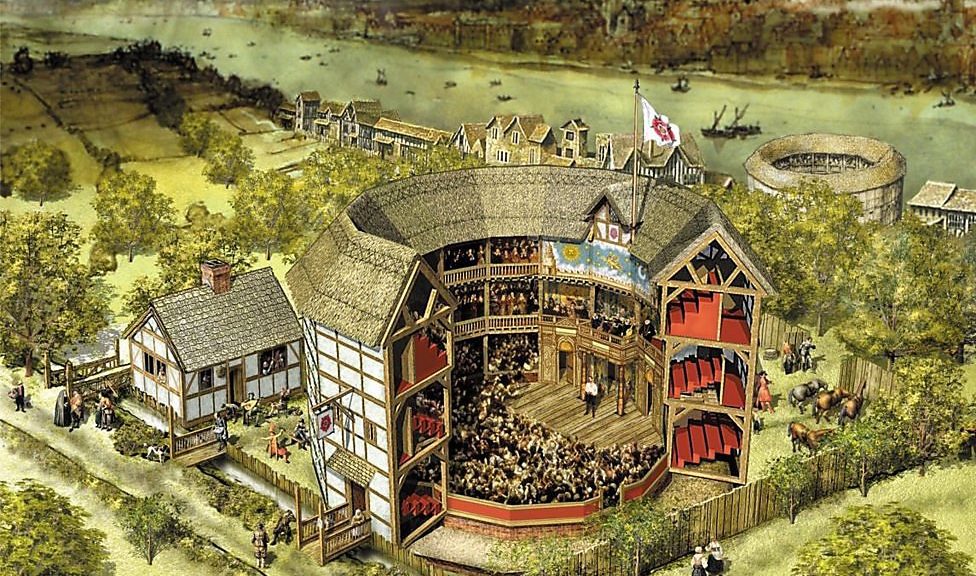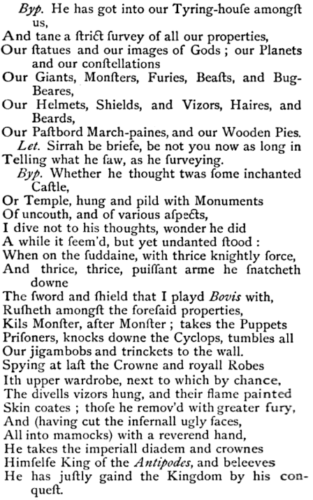Richard Brome was an English playwright during the Caroline era, making him about a generation removed from Shakespeare. One of his plays, The Antipodes, first performed in 1638, features a sort of play-within-a-play that gives us a glimpse into a properties storeroom of the time. The character of Peregrine is fooled into believing he has traveled to the Antipodes, a mythical “anti-London” on the opposite side of the world. The inhabitants are simply theatrical actors, though, hired by a doctor in an attempt to treat Peregrine. Peregrine eventually finds his way “backstage” into the props storage area, known in this time as the “tiring house”, and begins destroying the props, believing they are real items in the Antipodes. Another character, Byplay, recounts this event. It gives us a glimpse into what manner of props and scenery may have been stored at an English theater during this time period:
Byplay: He has got into our tiring house amongst us,
And ta’en a strict survey of all our properties,
Our statues and our images of gods, our planets and our constellations,
Our giants, monsters, furies, beasts, and bugbears,
Our helmets, shields and vizors, hairs and beards,
Our pasteboard marchpanes and our wooden pies.
later…
When on the sudden, with thrice knightly force,
And thrice, thrice puissant arm he snatcheth down
The sword and shield that I played Bevis with,
Rusheth amongst the foresaid properties,
Kills monster after monster, takes the puppets
Prisoners, knocks down the Cyclops, tumbles all
Our jiggumbobs and trinkets to the wall.
Spying at last the crown and royal robes
I’th’ upper wardrobe, next to which by chance
The devil’s vizors hung and their flame-painted
Skin coats, those he removed with greater fury,
And (having cut the infernal ugly faces,
All into mammocks) with a reverend hand,
He takes the imperial diadem and crowns
Himself King of the Antipodes, and believes
He has justly gained the kingdom by his conquest.
The Antipodes by Richard Brome, Act 3 Scene 1. 1638. https://www.dhi.ac.uk/brome/viewTranscripts.jsp?play=AN&act=1&type=BOTH



